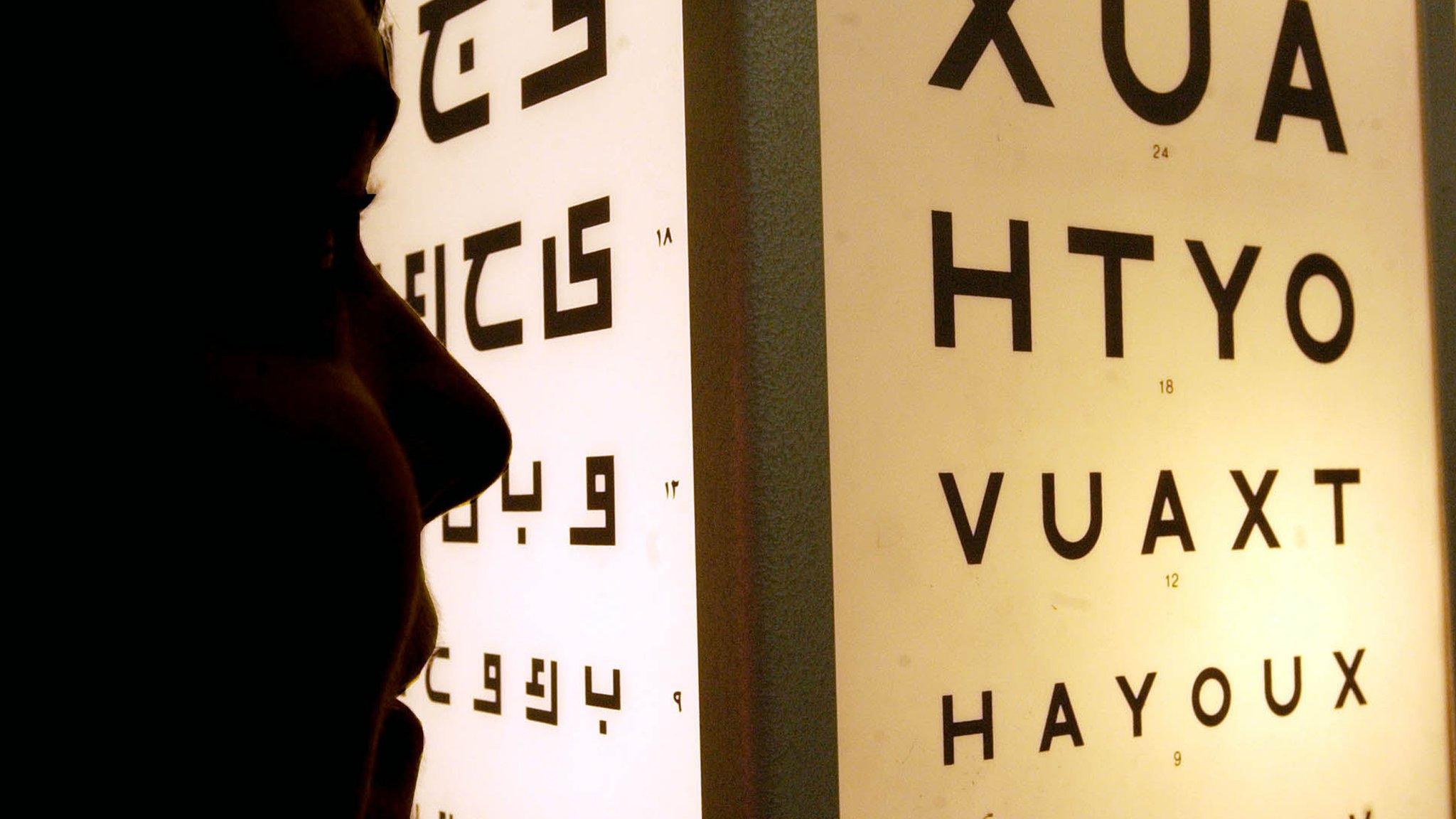Game used to test children's eyesight made in Wales
- Published
It is hoped children will enjoy the game more than a standard eye test
A game for tablets is being developed in Wales which parents can use to test their children's eyesight at home.
The Space Vision app gets children to tap increasing faint black and white squares on a grey background to make aliens pop up and make a noise.
Their ability to keep track of the squares can be used to screen for vision problems and developers hope it will ease the burden on the NHS.
The co-founder of Vision Games, said it was an "exciting prospect".
Luke Anderson started the company with Dr Stephanie Campbell with support from the Centre of Excellence in Mobile and Emerging Technologies at the University of South Wales.
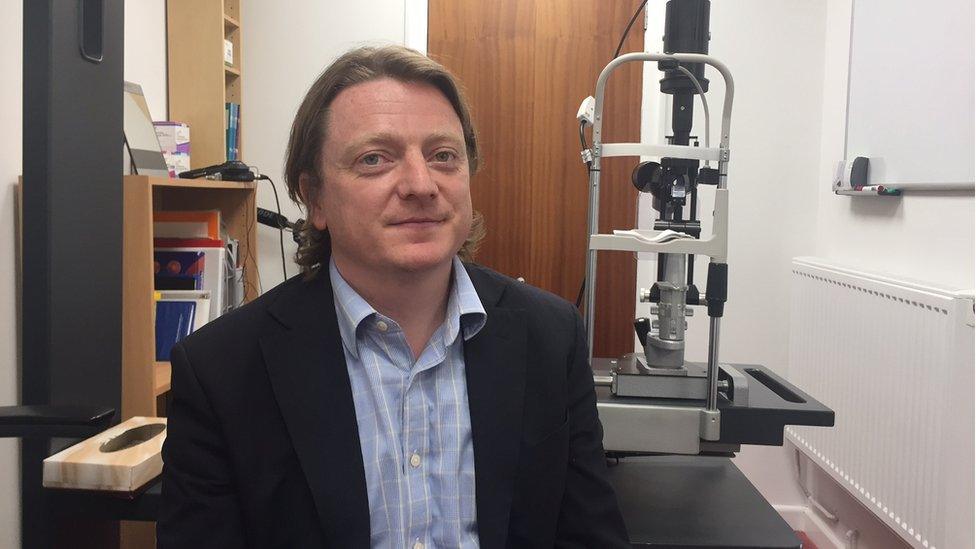
Luke Anderson developed the game with Stephanie Campbell
Early tests picked up vision problems, such as lazy eye, in children as young as two.
Mr Anderson said: "We're living in a time where there's increased pressure on the health service and if you can get patients monitoring their own vision at home that takes stress off hospital systems."
The app, once publically available, would initially flag up any vision problems it identified to the user and advise them if they needed to make an appointment with a GP or optician.
In the long-run, Mr Anderson said the data could be synced with family GPs so doctors could access the information to make an assessment.
Mr Anderson, a consultant eye surgeon at Cwm Taf University Health Board, said the idea came from the "extremely difficult" experience of trying to assess children's eyesight using charts.
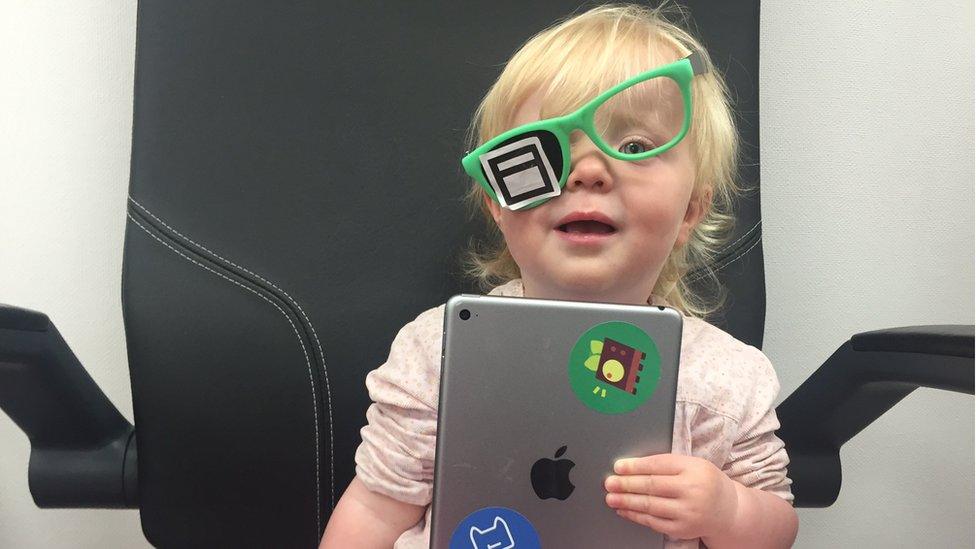
They often struggled to get young children to sit still, so developing a game children would take an interest in helps them gather more data.
Areas of vision tested include colour, motion, black on white and differentiating between shades of grey.
The app is about to undergo larger clinical tests after a small initial run, but Mr Anderson said if everything went to plan, it could be downloadable within 18 months.
Mr Anderson said getting children to sit still "was still a problem," adding: "But, looking at my children, the time when they're quiet is when they're sitting there on a tablet or a phone.
"So we just naturally took the science and tried to implement it on that platform. The use of technology for efficiency within the NHS is an exciting prospect."
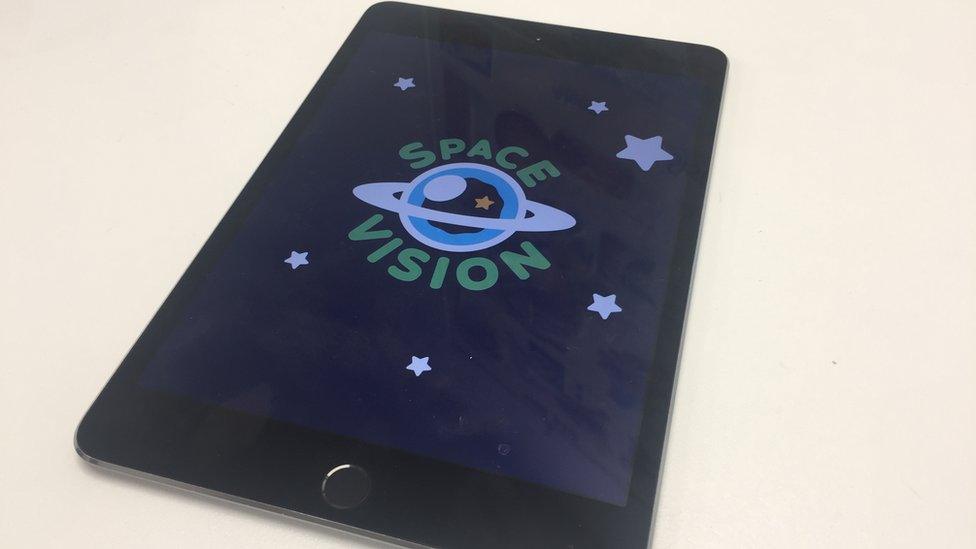
- Published6 September 2016
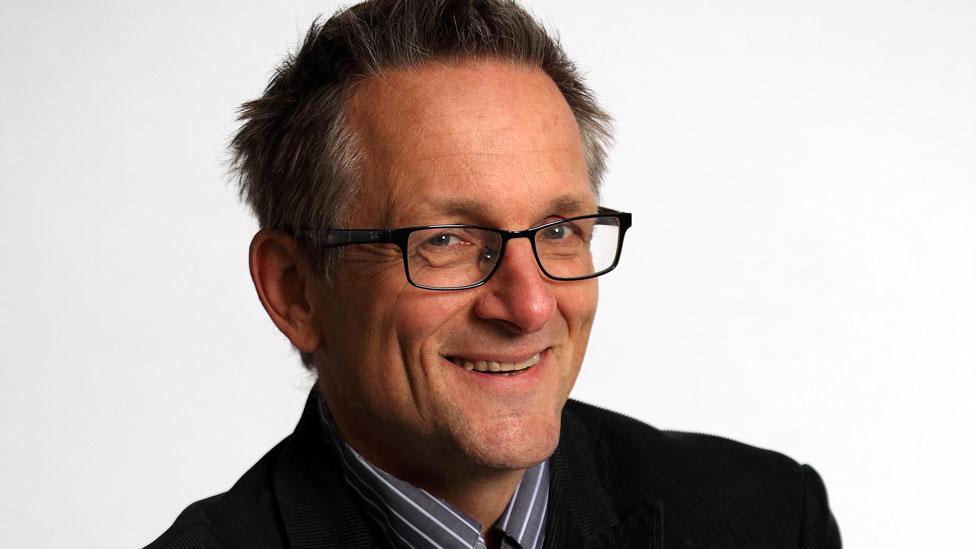
- Published4 May 2016
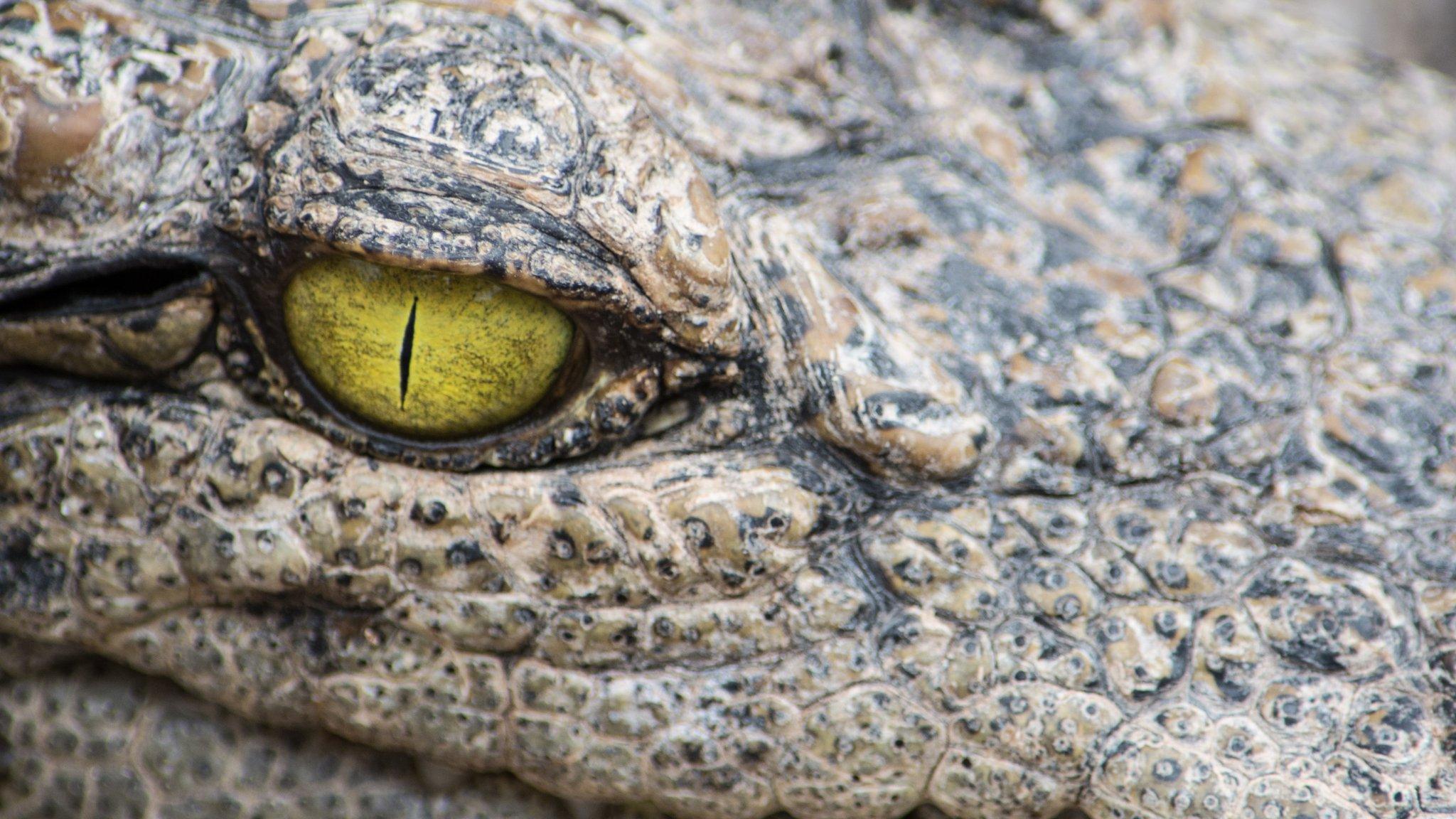
- Published17 June 2014
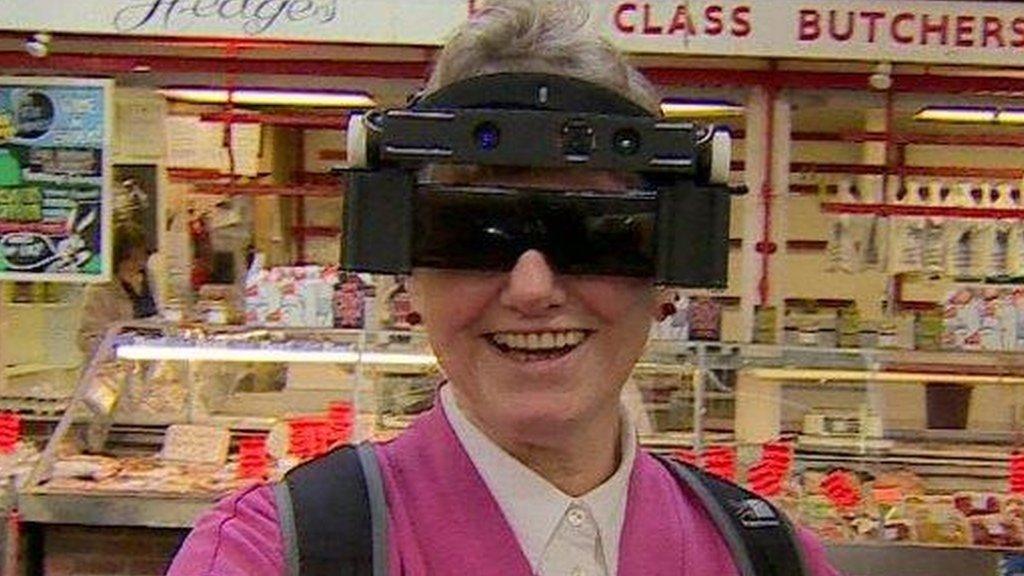
- Published6 July 2013
